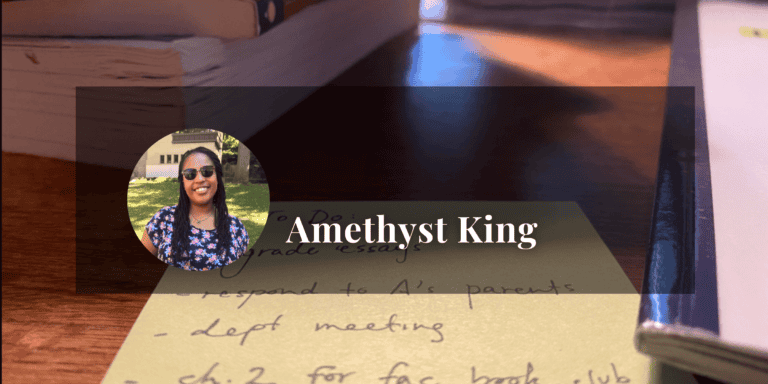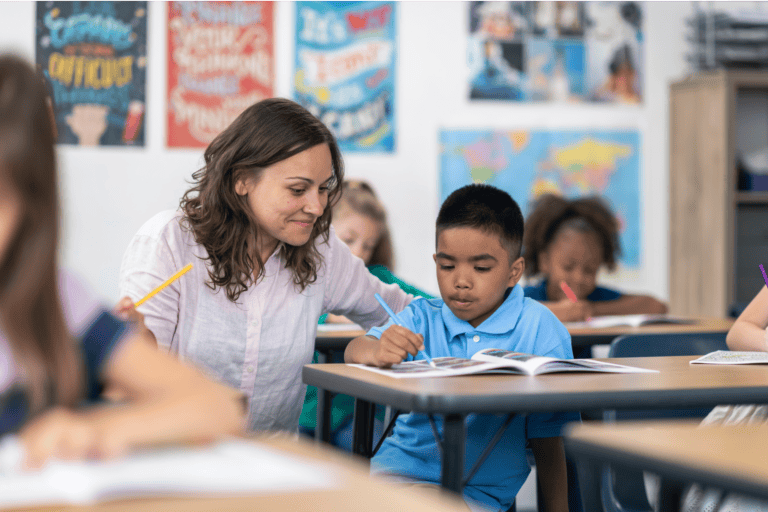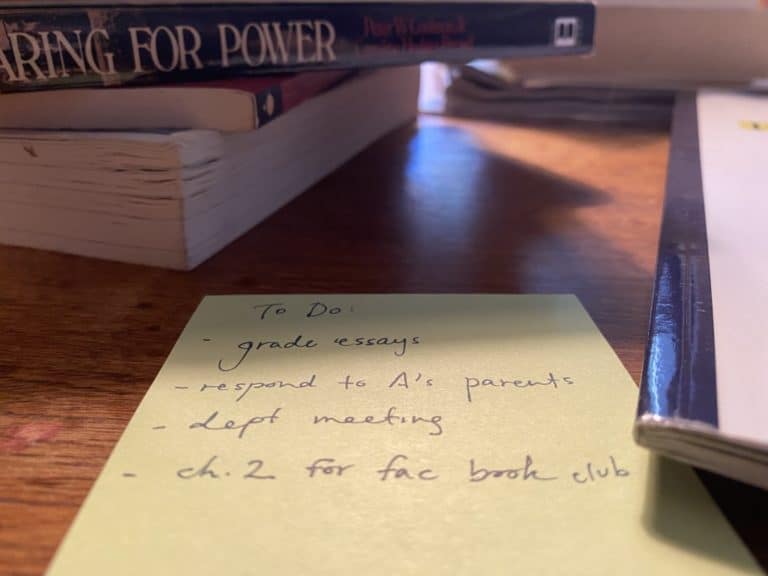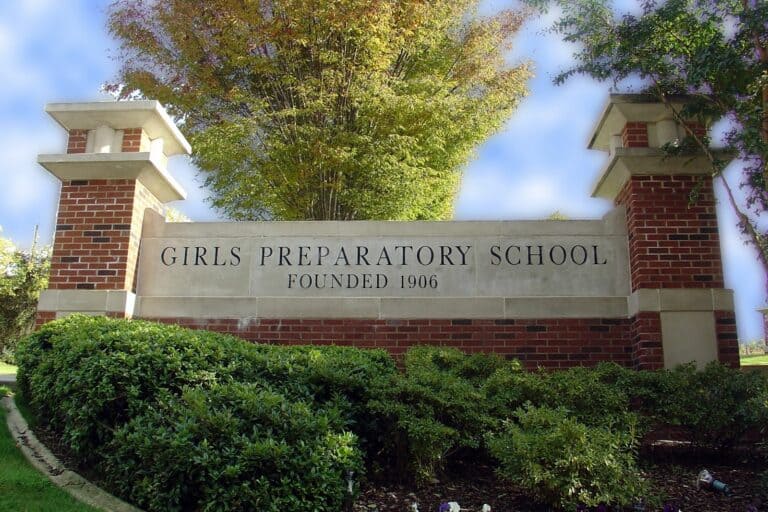Discussion Dashboards: Fall Recap & Looking Forward
by Emily Gromoll, Director of Program
We began this school year excited to launch R.E.A.L. Discussion Dashboards, our new action research tool, but we were not sure what to expect. We hoped for a few things: first, that we could learn more about which areas – namely, discussion skills, sense of belonging, growth mindset, etc. – were strengths for students and which had the most potential for growth. Second, we hoped to discover what students really think about discussion – where did they see it used in the “real world”? What value did they think it would have for them? Finally, and importantly, we hoped students would answer earnestly … and teachers would get excited to dig into this descriptive data from their classes!
Where did students see discussion used in the real world? What value did they think it would have for them?
As we wrap up the Fall semester, we’ve been nerding out over the student survey data rolling in and populating the Dashboards. While we can’t be certain that 100% of students responded to 100% of the survey with the utmost seriousness (they are adolescents, after all!) we are certain that students answered deep questions about how they felt in the moment and took time to proudly tally the skills they used in each discussion. Plus, if their open-ended answers gave us any indication, they are quite the creative, joyful, honest bunch.
We’ve also been delighted by the moments we’ve spent with teachers, examining R.E.A.L. Discussion Dashboard trends, parsing patterns in student responses, and thinking about evidence-based ways to refine discussion practice.
So we’re eager to share: what have we learned so far? It’s only December – most teachers have completed between three and six R.E.A.L. Discussions in their classrooms – but what especially exciting inklings of growth have we seen ?
Four findings in particular made us smile this Fall:
- Sense of Belonging jumped up across multiple grades, but especially in 7th and 10th
- “Relate” and “Excerpt” shine in Cycle 1, but Cycle 2 is all about “Ask”
- Introverts are building confidence asking questions
- Our youngest students (6th graders) are thinking ahead to future careers, but they have very different (and somewhat hilarious) ideas of what those careers will look like
Finding #1: Sense of belonging jumped – especially for 7th and 10th graders
We ask three questions as part of our “Belonging Index,” and each stems from a mix of research on what it means for students to feel that they belong and can succeed in a classroom. Belonging is more than understanding how to fit in or “do school” the right way – it’s deeper than that. As motivational researcher Chris Hulleman from Motivate Lab and UVA says, belonging is the belief that “one is academically and socially connected, supported, and respected.”
That’s why we ask these questions of R.E.A.L. students: to find out if they feel like the classroom environment supports, respects, and connects them to their peers.

First – and worth celebrating: it is rare for students to fall in that “nascent” zone when it comes to belonging. We think this is a reflection of the thoughtful cultures independent schools are building. We all know very well that adolescence means constantly wondering “do I belong?” We all want students to be able to answer that question with a yes – and not just because of our interactions with them as teachers, but because of how they feel among their peers in a classroom.
We all know very well that adolescence means constantly wondering “do I belong?“
Here’s the data across all classrooms this Fall – you’ll notice about a 25-point jump from a “Developing” to a “Strong” sense of belonging!

Interestingly, the Belonging curves we are seeing are steeper in 7th and 10th grades. It makes us wonder what it is about those grades that might lead students to develop a deeper sense that they can succeed.
Finding #2: Cycle 1 (The first three REAL Discussions) is all about Relating and Excerpting. But Cycle 2 (Discussions 4-6)? That’s for Asking!
Across all classrooms and all grade levels – students focus on various R.E.A.L. skills at different times. But we wondered: which skills do they focus on more in Cycle 1, and which move to the forefront in Cycle 2?
Our hunch after speaking with dozens of teachers was that “Relate” and “Excerpt” are big at first, and “Ask” is a focus later. When we looked closer at the data we collected, we saw inklings that we might be onto something. We noticed that the jump in Cycle 1 to Cycle 2 for students tracking themselves using “Ask” reflects practically an 80% increase.
Finding #3: Introverts are rapidly increasing confidence and efficacy in discussions, especially when it comes to asking questions.
How do introverts experience discussion differently than extroverts?
First, a disclaimer: the idea of splitting the population into introverts and extroverts was a method created by Carl Jung in the 1920s. We know now that humans don’t all fall so smoothly into those two categories, nor is personality in general a fixed thing. In fact, our personalities can change over time. Many of us are more like ambiverts than true introverts or extroverts.
With that in mind, we still find that it’s important to ensure that, as teachers, we are creating the kinds of learning environments where students of all personality types and experiences can succeed in class discussions.
Reaching all Learners in Class Discussions
Discussion has historically been designed to favor students who tend to be more extroverted, whose experience at home has involved the kinds of conversation mirrored at school, or who have been rewarded in the past for quick responses to teachers’ questions. How can we reach those students who may identify as more introverted, benefit from more thinking time to develop richer ideas, or show their thinking in ways that aren’t always rewarded in traditional classroom discussions?
Our hope at R.E.A.L.– and it’s something we hear echoed from a lot of teachers – is to use class discussion as a structure to make space for all to participate equitably, especially the introverts.
The Results are In: Confidence pre- and post-R.E.A.L.
So, one thing we are eager to examine is the split between self-reported introverts and extroverts and how comfortable they felt asking a question pre-R.E.A.L. and after Cycle 1. Here’s what we found: in Pre-R.E.A.L. surveys, 57% of self-identifying Introverts responded that they felt comfortable asking a question in discussion. That number jumped to 83% after Cycle 1.
As more students take the survey in Cycle 1 and begin Cycle 2, we’ll keep our eyes peeled for other ways introverts are shining in their R.E.A.L. Discussions.
Pre-REAL:

Cycle 1:

Finding #4: We can’t wait for the world to be run by the kids currently in sixth grade.
Our youngest students this year (6th graders) have their eyes set on future careers – with creative ideas about what that looks like!
One of our favorite things to do is review students’ open-ended responses and share them with teachers. At the end of the survey, students reflect on how they think they’ll use the skills they’ve gained from R.E.A.L. in the future (after Cycles 1-3, they also reflect on ways their class has grown). Students’ responses come in every shape and size. They are honest, profound, creative, and absolutely hilarious – often all at once.
This fall, we had a sizable cohort of sixth graders get started with R.E.A.L. We’ve been getting a real kick out of the responses of these, our youngest, students – especially as they envision their future careers. When asked “How will you use the skills you learn in R.E.A.L. in the real world?”, students have fascinating answers.
Many are already thinking ahead to navigating the corporate world:
>> “Discussions are important since when you get a job you need to have a bunch of discussions on how your sales are, or if the stock market is crashing, or whatever you are doing you are going to have a discussion about that topic most likely.”
>> “So you know how to nail a promotion and get that loan you want or that business started so you don’t mess up a conversation and not lose something big like a big opportunity in life itself.”
>> “If you have to discuss something really important for work that potentially get your company really rich.”
>> “Pretty much every job you have to discuss with your coworkers and if I have learned how to do this I will be able to share my opinions.”
Or how they might use discussion in the medical field:
>> “Because when I grow up I want to be a doctor and to be one you have to talk out loud in front of crowds A TON.”
Or even just how they might use it to get that candy bar they want in the near future (or perhaps this student will be a future philosophy major ;)):
>> “Everyone has to ask questions, or nobody will know anything that they need to know. Like, if you really wanted to know if you could have that candy bar, and the answer was yes (but you didn’t know it because you did not take the chance to ask the question because, maybe you are too shy), and you didn’t ask, then you would never get the candy bar because you didn’t ask. I think that “if you don’t ask, then the answer is always no.”
What a delight to get a little glimpse into the minds of these wise young students! We can’t wait to share more pieces of wit and wisdom from them in future blog posts. Stay tuned!






